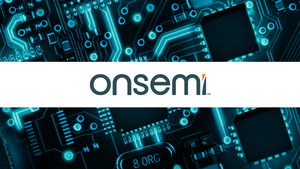The technological landscape is undergoing a profound transformation with the rapid advancements in specialized Large Language Models (LLMs) tailored for highly technical domains such as coding, mathematics, and scientific reasoning. These sophisticated AI models are moving beyond general-purpose capabilities, offering unprecedented precision, efficiency, and contextual understanding in their respective fields. This shift promises to redefine productivity, accelerate innovation, and reshape professional roles across industries, from software development to cutting-edge scientific research.
The immediate implications are far-reaching. Developers are gaining powerful AI co-pilots that streamline code generation and debugging, while scientists are leveraging AI to synthesize complex data and generate novel hypotheses at an accelerated pace. This specialization marks a critical evolution in AI, addressing the limitations of broader LLMs that often struggle with the nuanced logic and abstract concepts inherent in technical disciplines.
The Dawn of Precision AI: Specialized LLMs Take Center Stage
The emergence of highly specialized LLMs represents a significant leap forward in artificial intelligence, addressing the inherent limitations of general-purpose models in handling the intricate demands of technical domains. While models like OpenAI (NASDAQ: MSFT) GPT-4 and Google (NASDAQ: GOOGL) Gemini have demonstrated impressive general capabilities, their performance often falters when confronted with the rigorous logic, precise calculations, and deep contextual understanding required in coding, advanced mathematics, and scientific inquiry. This gap has spurred the development of models specifically trained and fine-tuned on vast datasets of code, mathematical proofs, and scientific literature, leading to a new generation of "precision AI."
Key players in this evolving landscape include OpenAI's 'o' series models, such as o3-mini (now often referred to in the context of their broader GPT-4o and mini models), which demonstrate strong reasoning and code generation capabilities. DeepSeek's R1 and DeepSeek Coder V2 have emerged as formidable open-source contenders, noted for their robust performance in both coding and mathematical reasoning, often approaching the benchmarks set by proprietary models like GPT-4 Turbo. These models are particularly praised for their cost-efficiency, making advanced AI capabilities more accessible.
In the realm of scientific reasoning, models like xAI's Grok 2/3, while still somewhat shrouded in specific technical details, are anticipated to push the boundaries of AI's ability to process and generate scientific insights, potentially accelerating discovery in complex fields. Similarly, Tencent's (HKG: 0700) Hunyuan-7B-Instruct, a powerful model from a major Chinese tech giant, highlights the global race to develop domain-specific AI, focusing on instruction-following and complex problem-solving within technical contexts. These models are not merely generating text; they are designed to understand, interpret, and even create logical structures, debug code, and derive mathematical solutions. The timeline leading to this moment has been characterized by iterative improvements in model architectures, the availability of larger and more specialized training datasets, and advancements in computational power, allowing for the training of increasingly sophisticated models. Initial market reactions have been overwhelmingly positive, with software development teams reporting significant boosts in productivity and research institutions exploring new avenues for AI-assisted discovery.
The Shifting Sands: Winners and Losers in the Specialized LLM Race
The rise of specialized LLMs is creating distinct winners and losers across the technology and financial sectors, fundamentally reshaping competitive landscapes and investment strategies. Companies that are early adopters and developers of these domain-specific AI tools stand to gain significant competitive advantages, while those slow to adapt may find themselves struggling to keep pace.
Winners:
- AI Development Powerhouses: Companies like OpenAI (backed by Microsoft (NASDAQ: MSFT)), Google (NASDAQ: GOOGL), Anthropic, Mistral AI, Meta Platforms (NASDAQ: META), DeepSeek, xAI, and Tencent (HKG: 0700) are at the forefront of developing these specialized LLMs. Their continued innovation in model architecture, training methodologies, and access to vast computational resources positions them as primary beneficiaries. They will not only license their models but also integrate them into their own product ecosystems, creating powerful new offerings.
- Software Development Tool Providers: Companies like JetBrains, GitHub (owned by Microsoft (NASDAQ: MSFT)), Amazon (NASDAQ: AMZN) with CodeWhisperer, and Tabnine are integrating these specialized coding LLMs into their Integrated Development Environments (IDEs) and developer tools. This enhances their product offerings, attracts more users, and solidifies their market position by providing AI-powered assistance for code generation, debugging, and review.
- Cloud Computing Providers: The immense computational power required to train and run these sophisticated LLMs directly benefits cloud service providers such as Amazon Web Services (AWS) (NASDAQ: AMZN), Microsoft Azure (NASDAQ: MSFT), and Google Cloud (NASDAQ: GOOGL). Increased demand for high-performance computing, specialized AI accelerators, and data storage will drive revenue growth for these companies.
- Industries with Complex Technical Challenges: Sectors heavily reliant on coding, advanced mathematics, and scientific research, such as biotechnology, pharmaceuticals, aerospace, finance, and advanced manufacturing, stand to gain immensely. Companies within these industries that successfully integrate specialized LLMs into their workflows will see accelerated R&D cycles, improved problem-solving capabilities, and enhanced efficiency. For example, a pharmaceutical company using an LLM to accelerate drug discovery could significantly reduce time-to-market.
Potential Losers/Those Facing Challenges:
- Traditional Software Development Consultancies: Firms that rely heavily on manual coding and traditional development methodologies may face pressure as clients increasingly adopt AI-powered tools that automate significant portions of the development process. They will need to pivot towards AI integration, oversight, and specialized problem-solving.
- Entry-Level and Mid-Level Developers (without adaptation): While LLMs are powerful tools, they can automate many routine coding tasks. Developers who do not adapt their skill sets to focus on higher-level system design, critical review of AI-generated code, prompt engineering, and understanding complex architectural challenges may find their roles redefined or their market value diminished.
- Companies with Legacy Systems and Slow AI Adoption: Businesses that are slow to invest in AI infrastructure and integrate specialized LLMs into their operations risk falling behind competitors who leverage these technologies for greater efficiency and innovation. The cost of maintaining outdated systems and processes will become increasingly burdensome.
- General-Purpose LLM Providers (without specialization): While general LLMs will still have a place, providers who fail to develop or acquire specialized capabilities may see their market share erode in technical domains as users opt for more precise and effective specialized models.
The financial implications are significant. Companies that successfully leverage specialized LLMs can expect to see improved operational efficiency, reduced development costs, faster time-to-market for new products, and potentially new revenue streams from AI-powered services. Conversely, those that fail to adapt may face declining profitability and market relevance. Investors are closely watching which companies are making strategic investments in this area, as it will likely dictate future market leadership.
Industry Impact and Broader Implications: A Paradigm Shift
The advent of specialized LLMs for technical domains is not merely an incremental improvement; it represents a paradigm shift with profound implications across industries, extending far beyond the immediate beneficiaries and challengers. This event fits squarely into the broader industry trend of hyper-specialization in AI, moving away from "one-size-fits-all" models towards highly targeted solutions that deliver superior performance in specific contexts.
The ripple effects on competitors and partners are substantial. For instance, in the software industry, smaller development firms that can effectively integrate these powerful coding LLMs might suddenly compete more effectively with larger players, democratizing access to advanced development capabilities. Conversely, established software giants that fail to embed these tools into their ecosystems risk losing their competitive edge. Partnerships between AI model developers and industry-specific solution providers will become crucial, fostering an ecosystem where specialized LLMs are integrated into everything from scientific instruments to financial modeling software.
Regulatory and policy implications are also beginning to emerge. As LLMs become more deeply embedded in critical technical processes—such as designing medical devices, developing autonomous vehicle software, or performing complex financial calculations—concerns around accountability, safety, and intellectual property will intensify. Governments and regulatory bodies will likely grapple with questions of liability when AI-generated code contains errors, or when scientific conclusions drawn by an LLM lead to unforeseen consequences. The need for robust testing, validation, and explainability frameworks for these specialized models will become paramount, potentially leading to new industry standards and certifications. Furthermore, the potential for these models to accelerate scientific discovery raises ethical questions about the responsible use of powerful new knowledge and the potential for dual-use technologies.
Historically, this shift can be compared to the introduction of specialized software tools that revolutionized engineering or design. Just as Computer-Aided Design (CAD) transformed manufacturing by enabling precise digital modeling, specialized LLMs are poised to transform intellectual work by enabling precise, AI-assisted reasoning. Another parallel can be drawn to the development of expert systems in the 1980s, which aimed to capture human expertise in specific domains. However, current LLMs, with their unprecedented scale and learning capabilities, far surpass the limitations of those earlier systems, offering a more dynamic and adaptable form of "expertise." This evolution underscores a broader trend: as AI matures, it will increasingly move from general intelligence to highly capable, domain-specific intelligence, fundamentally altering how complex problems are approached and solved across every technical field.
What Comes Next: The Horizon of Specialized AI
The trajectory of specialized LLMs points towards a future where AI is not just a tool, but an indispensable partner in complex technical endeavors. In the short term, we can expect to see a rapid proliferation of highly refined, domain-specific models. This will include further fine-tuning of existing models on niche datasets, leading to even greater accuracy and contextual understanding in areas like quantum computing, advanced materials science, or specific branches of mathematics. Companies will increasingly integrate these LLMs directly into their proprietary software and workflows, moving beyond simple API calls to deeply embedded AI functionalities that are invisible to the end-user but profoundly impactful.
Long-term possibilities include the development of truly autonomous AI agents capable of conducting entire research cycles, from hypothesis generation and experimental design to data analysis and scientific paper drafting, with minimal human intervention. In software development, this could mean AI systems that can conceive, design, code, test, and deploy complex applications end-to-end. The concept of "AI-native" industries may emerge, where entire sectors are built from the ground up around the capabilities of these specialized LLMs, leading to unprecedented levels of efficiency and innovation.
Strategic pivots and adaptations will be crucial for businesses and professionals alike. Companies will need to invest heavily in AI literacy across their workforce, ensuring that employees can effectively collaborate with and leverage these advanced tools. This includes training in prompt engineering, AI model evaluation, and understanding the limitations and biases of AI-generated content. For individuals, continuous learning and adaptation will be key, with a focus on higher-order thinking, critical analysis, and interdisciplinary skills that complement AI capabilities.
Market opportunities will emerge in the development of specialized AI training data, AI governance and ethics consulting, and the creation of new AI-powered services that were previously impossible. Challenges will include managing the ethical implications of increasingly autonomous AI, ensuring data privacy and security, and navigating the potential for job displacement in certain roles. Potential scenarios range from a highly collaborative human-AI future, where productivity skyrockets, to more disruptive outcomes if the societal and economic impacts are not managed proactively. The next few years will be a critical period of experimentation and adaptation as industries learn to harness the full potential of these specialized AI powerhouses.
Conclusion: Precision AI Reshaping Our Technical Future
The advancements in specialized Large Language Models for technical domains mark a pivotal moment in the evolution of artificial intelligence. We are witnessing a fundamental shift from general-purpose AI to "precision AI," where models are meticulously crafted and trained to excel in the intricate worlds of coding, mathematics, and scientific reasoning. The key takeaway is clear: these specialized LLMs are not just incremental improvements; they are transformative tools poised to redefine productivity, accelerate innovation, and reshape professional roles across industries.
Moving forward, the market will increasingly value depth over breadth in AI capabilities. Companies that invest in developing or integrating these domain-specific LLMs will gain significant competitive advantages, leading to faster product development cycles, more efficient research, and novel problem-solving approaches. Conversely, those that cling to outdated methodologies or fail to embrace AI integration risk obsolescence. The ripple effects will extend to cloud computing providers, who will see increased demand for their infrastructure, and to educational institutions, which must adapt curricula to prepare a workforce capable of collaborating with advanced AI.
The lasting impact of this trend will be a more efficient, innovative, and potentially more equitable technical landscape. By democratizing access to advanced coding, mathematical, and scientific capabilities, specialized LLMs can empower a broader range of individuals and organizations to contribute to technological progress. However, this transformative power also brings responsibilities. Investors should watch for companies that not only lead in AI development but also prioritize ethical AI deployment, robust validation frameworks, and proactive strategies for workforce adaptation. The coming months will be crucial in observing how industries integrate these powerful tools, how regulatory frameworks evolve, and how human ingenuity continues to synergize with increasingly intelligent machines to unlock unprecedented possibilities. The future of technical innovation is undeniably intertwined with the continued evolution and adoption of specialized AI.





